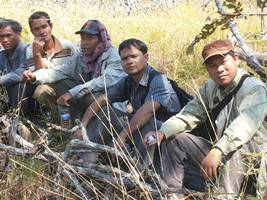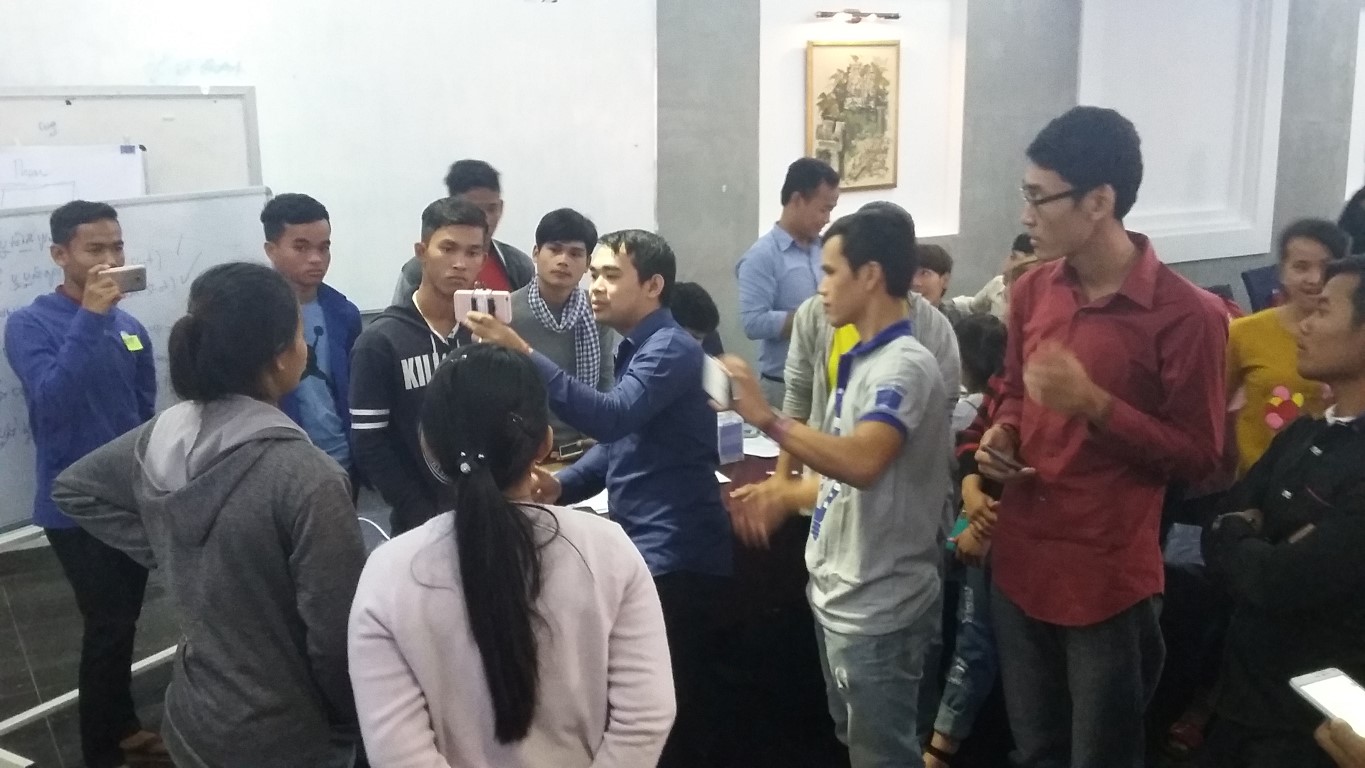 CCIM’s network of citizen journalists (CJs) expanded in 2015 to include almost 80 community members from 16 provinces specially trained as reporters. The news these citizen journalists provide to the VOD news outlet not only increases citizens’ access to information, but in some cases also results in meaningful changes for their communities. This has been the case for two CCIM citizen journalists in Ratanakiri and Svay Rieng.
CCIM’s network of citizen journalists (CJs) expanded in 2015 to include almost 80 community members from 16 provinces specially trained as reporters. The news these citizen journalists provide to the VOD news outlet not only increases citizens’ access to information, but in some cases also results in meaningful changes for their communities. This has been the case for two CCIM citizen journalists in Ratanakiri and Svay Rieng.
Sovann Bunthai, a CJ trained by CCIM as part of the “Human Rights Defenders in the Cyber-Age” project funded by the Swedish International Development Agency (SIDA), regularly produces news reports on issues that matter to him and his community, including illegal logging, land conflicts, forced evictions and other human rights abuses taking place in his native Ratanakiri Province. Bunthai’s reports have aired on CCIM’s VOD radio and appeared on the VOD website, giving him a potential audience of millions. Thanks to Bunthai’s report, a villager representative in Mass Pouy Commune of Ratanakiri was released after he was accused of inciting protesting villagers to set fire to a tent belonging to a company involved in a land dispute with the community.
Another CJ, Leng Chanratanak, from Svay Rieng, is proud of being a public messenger and advocate for access to information. Ratanak said he believes that what he is doing is right, and he is determined to continue his reporting in hope that his articles will bring changes to his community and the country as the whole. Ratanak has seen first-hand the positive impacts of his work on the community, explained CCIM Senior Project Manager Hok Narin.
“The community trusts the CJs and provides information, and the local authorities are afraid of committing some unlawful acts such as corruption,” Narin said.
Currently, CCIM has 28 CJs operating under four different projects funded by SIDA, the European Commission and Rosa Luxemborg Stiftung. Though CJs from each project come from different areas and backgrounds — for example, RLS funds women worker CJs largely from garment factories in Phnom Penh, while SIDA funds a number of citizen journalists from rural provinces and indigenous communities — their goal remains the same: To provide breaking news reports, thereby increasing access to information.
The CJs provide valuable contributions to VOD due to their ability to report from remote areas where CCIM and other professional news outlets do not have reporters.
“VOD cannot cover all 24 provinces. However, thanks to the CJs, we have access to reports directly from the community,” said Narin. “With their smartphones, CJs can report first-hand stories, and VOD reporters will do the editing before it is broadcast,”
CCIM’s first CJs were trained in 2011, with funding from UNESCO. Since then, CCIM has developed an expertise in the area of citizen journalism and is considered the country’s leader in this subject area. All of CCIM CJs are trained on topics including news reporting, investigative reporting, multimedia reporting, social media, information security, physical safety, human rights, and more.


